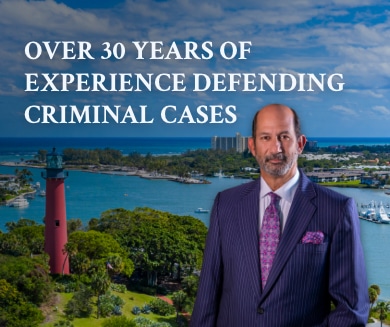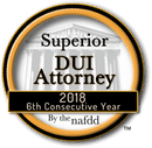Being charged with a drug crime drastically alters the course of your life. Florida’s criminal justice system treats drug offenses with exceptional severity, imposing some of the harshest penalties in the nation for both violent and nonviolent drug crimes. If convicted, you could face penalties ranging from probation to mandatory minimum prison sentences, steep fines, and lifelong restrictions that impact your future employment, housing, and educational opportunities.
At The Law Office of Gabriel & Gabriel, West Palm Beach Criminal Defense Attorney Brian Gabriel provides experienced representation for individuals facing drug-related charges. With over 30 years of experience in criminal defense, he has successfully defended countless clients against drug charges and can develop a strategic defense customized to your specific situation.
Types of Drug Offenses in West Palm Beach
Florida’s stringent drug laws criminalize various activities related to controlled substances. The most common drug offenses include:
- Simple possession: Having actual or constructive control over a controlled substance for personal use
- Possession with intent to sell: Possessing controlled substances with the purpose of distributing them
- Drug trafficking: Manufacturing, selling, delivering, or possessing large quantities of illegal substances
- Drug manufacturing/cultivation: Growing, producing, or preparing illegal drugs
- Drug distribution: Transferring, selling, importing, or moving controlled substances
- Possession of drug paraphernalia: Having items used to ingest, prepare, or process controlled substances
Each of these offenses carries different elements that prosecutors must prove and potentially different penalties. For instance, simple possession involves smaller quantities for personal use, while trafficking involves larger quantities that exceed statutory thresholds.
Florida’s Drug Court Program
Often, drug offenders who struggle with substance abuse could benefit more from treatment than harsh punishment. This is where drug court comes into play. Drug court is an intervention program that began in South Florida to address the increasing recidivism rates for felony drug offenders in the late 1980s and early 1990s.
What is Drug Court?
Drug court breaks the cycle of criminal behavior by diverting nonviolent offenders from the traditional criminal justice system into a comprehensive treatment program. By providing increased supervision, access to public resources, and expedited case processing, drug courts have proven to:
- Lower rearrest and conviction rates
- Improve substance abuse treatment outcomes
- Reunite families
- Produce measurable cost benefits to the community
Who is Eligible for Drug Court?
Eligibility for drug court typically includes:
- First-time nonviolent offenders
- Individuals with substance abuse issues
- Those facing specific drug-related charges
- Defendants without extensive criminal histories
Eligible defendants enter drug court as a condition of probation. It is a voluntary program that requires participants to:
- Make regular court appearances
- Submit to random drug testing
- Attend treatment sessions
- Meet with probation officers
- Comply with all court-ordered conditions
Most individuals who successfully complete the program will have their cases dismissed completely, allowing them to avoid a permanent criminal record and the stress and cost of a criminal trial.
Drug Classifications and Penalties in Florida
Florida classifies controlled substances into schedules based on the potential for abuse. This classification directly impacts the severity of charges and potential penalties you might face.
Schedule I and II Drugs
The following drugs have a high potential for abuse with no accepted medical use, including the following:
- Heroin
- LSD
- Ecstasy/MDMA
- Certain synthetic cannabinoids
Schedule II may also have a likelihood of abuse but may have limited medical applications, including:
- Cocaine
- Methamphetamine
- Oxycodone
- Fentanyl
Possession of Schedule I or II substances typically results in felony charges. According to the Florida Department of Corrections, drug offenses remain among the most common reasons for incarceration in Florida’s prison system, illustrating the state’s hard stance on drug crimes.
Schedule III, IV, and V Drugs
Schedule III, IV, and V substances have progressively lower potential for abuse and increasing medical applications. These include drugs like anabolic steroids (Schedule III), benzodiazepines (Schedule IV), and certain cough medications with codeine (Schedule V).
Possession without a valid prescription results in misdemeanor or felony charges. Penalties typically range from up to 1 year in jail for first-degree misdemeanors to 5 years in prison for third-degree felonies.
Marijuana Laws in Florida
Despite being a Schedule I drug, marijuana is treated somewhat differently under Florida law:
- Less than 20 grams of marijuana is a first-degree misdemeanor, up to one year in jail and a $1,000 fine
- More than 20 grams is a third-degree felony, up to five years in prison and a $5,000 fine
- Medical marijuana is legal for qualifying patients under strict regulations
If discovered carrying over 25 pounds of marijuana, you could face federal trafficking charges with mandatory minimum sentences.
Mandatory Minimum Sentences
Florida’s drug laws impose mandatory minimum sentences for many drug offenses, particularly trafficking charges. These sentences strip judges of their ability to use discretion based on the specific circumstances of each case
For example, trafficking amounts of controlled substances trigger the following mandatory minimums:
- 25-2,000 pounds of marijuana: 3 years minimum/$25,000 fine
- 28-200 grams of cocaine: 3 years minimum/$50,000 fine
- 4-14 grams of heroin: 3 years minimum/$50,000 fine
- 14-28 grams of methamphetamine: 3 years minimum/$50,000 fine
These mandatory minimums increase significantly with larger quantities.
Benefits of Drug Court Over Traditional Sentencing
For eligible defendants, drug court offers several advantages over traditional criminal prosecution:
- Avoidance of incarceration
- Access to treatment and rehabilitation services
- Counseling and psychological evaluation
- Education and life skills training
- Opportunity to have charges dismissed upon completion
- Reduced likelihood of reoffending
- Support for recovery and reintegration
Common Defenses for Drug Charges
An experienced criminal defense attorney employs several strategic defenses against drug charges, potentially resulting in reduced charges, diversion to drug court, or case dismissal.
Constitutional Violations
The Fourth Amendment protects against unreasonable searches and seizures. If law enforcement obtained evidence through an illegal search—without a warrant, probable cause, or proper consent—Criminal Defense Attorney Brian Gabriel may file a motion to suppress that evidence. When evidence is suppressed, prosecutors often lack sufficient grounds to proceed with the case.
Constructive Possession Challenges
Prosecutors must prove you had knowledge of and control over the drugs. In cases where drugs were found in shared spaces or vehicles with multiple occupants, establishing constructive possession becomes more difficult. Criminal Defense Attorney Brian Gabriel can challenge the prosecution’s ability to prove you knew about or controlled the substances.
Chain of Custody Issues
Evidence must follow strict handling protocols from seizure through testing and storage. Any breaks in this chain of custody can compromise evidence integrity. Criminal Defense Attorney Brian Gabriel meticulously examines evidence-handling procedures to identify potential errors that could invalidate the evidence against you.
Entrapment
Some drug prosecutions result from police operations in which crimes are encouraged by law enforcement officers or confidential informants. If an officer or informant made threats or persistent enticements that caused you to commit a criminal offense, an entrapment defense may be appropriate.
Court-Ordered Drug Testing
Court-ordered drug testing is a crucial component of both drug court programs and conventional probation. These tests are more comprehensive than voluntary tests and often require multiple biological samples. Testing may involve:
- Urine tests (most common)
- Hair follicle tests (can detect drug use for up to 12 months)
- Saliva tests
- Blood tests
Tests are administered by licensed, accredited labs with a clear chain of custody to prevent contamination or tampering. They are typically performed randomly and without advance notice to ensure ongoing compliance.
Contact an Experienced Drug Defense Attorney in West Palm Beach
Whether you’re facing a simple possession charge or more serious trafficking allegations, prompt legal assistance is essential. If you’re a first-time offender or struggling with substance abuse addiction, you may be eligible for drug court—a valuable alternative to traditional prosecution that focuses on rehabilitation rather than punishment.
Criminal Defense Attorney Brian Gabriel has dedicated his career to defending individuals against drug charges throughout West Palm Beach. He will handle your case using all the knowledge and skills he has developed over the span of his career. Start with a free consultation today by calling Criminal Defense Attorney Brian Gabriel at (561) 622-5575. You can also complete an online contact form to learn more.










